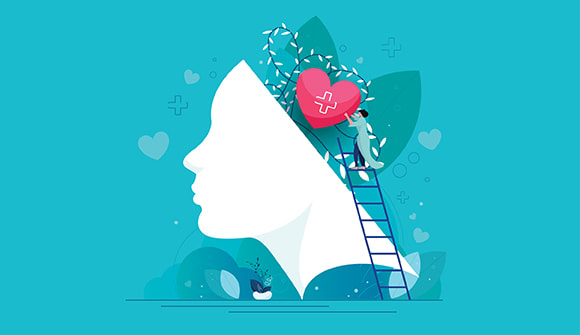What to do when panic attacks
A psychiatrist explains how to curb feelings of doom and intense fear.
Article Author: Beth Stambaugh
Article Date:

If you’ve never experienced a panic attack, consider yourself fortunate. Those who have understand how frightening it can be.
In the U.S., one in 10 adults experience panic attacks each year. About a third of people have at least one in their lifetime. Panic attacks usually come out of the blue and can happen even while you’re sleeping.
“It’s a feeling of intense fear even though there is no present danger,” said Yarelis Guzman, MD, a psychiatrist with Baptist Behavioral Health.
Common symptoms can include a racing heart, sweating, shaking, shortness of breath, a choking feeling, nausea, numbness, tingling, or experiencing chills or profuse sweating. “If you experience four or more of these symptoms at once, you are having a panic attack,” explained Dr. Guzman.
“Some people also experience ‘derealization,’ which is when you feel detached from your surroundings, like being in a dream,” explained Dr. Guzman.
Often, panic attacks occur in tandem with other mental health conditions, such as post-traumatic stress disorder (PTSD) or depression. “Physical conditions like asthma can also cause panic attacks due to the fear of suddenly not being able to breathe,” said Dr. Guzman. In addition, smokers and people with a family history of allergies are more at risk.
To ward off or minimize a panic attack, Dr. Guzman offers these tips:
- Take deep, slow breaths – four seconds in and seven seconds out.
- Recognize that you are having a panic attack and that it is temporary.
- Get grounded using the 5-4-3-2-1 exercise: Acknowledge 5 things you can see, 4 things you can touch, 3 things you can hear, 2 things you can smell and 1 thing you can taste.
- Relax your muscles. Start with your toes and slowly move up your body.
If you’re experiencing frequent panic attacks, it’s time to see your doctor. Once your primary care physician rules out medical conditions like heart problems or respiratory issues, he or she may suggest therapy.
“Cognitive behavioral therapy can help you learn that the symptoms you experience during a panic attack are not dangerous,” Dr. Guzman said. “Medications, such as antidepressants, can be effective as well.
“The earlier the diagnosis is made and treatment begins, the better chance you have of success.”
If you have experienced panic attacks and need a mental health provider, click here.



